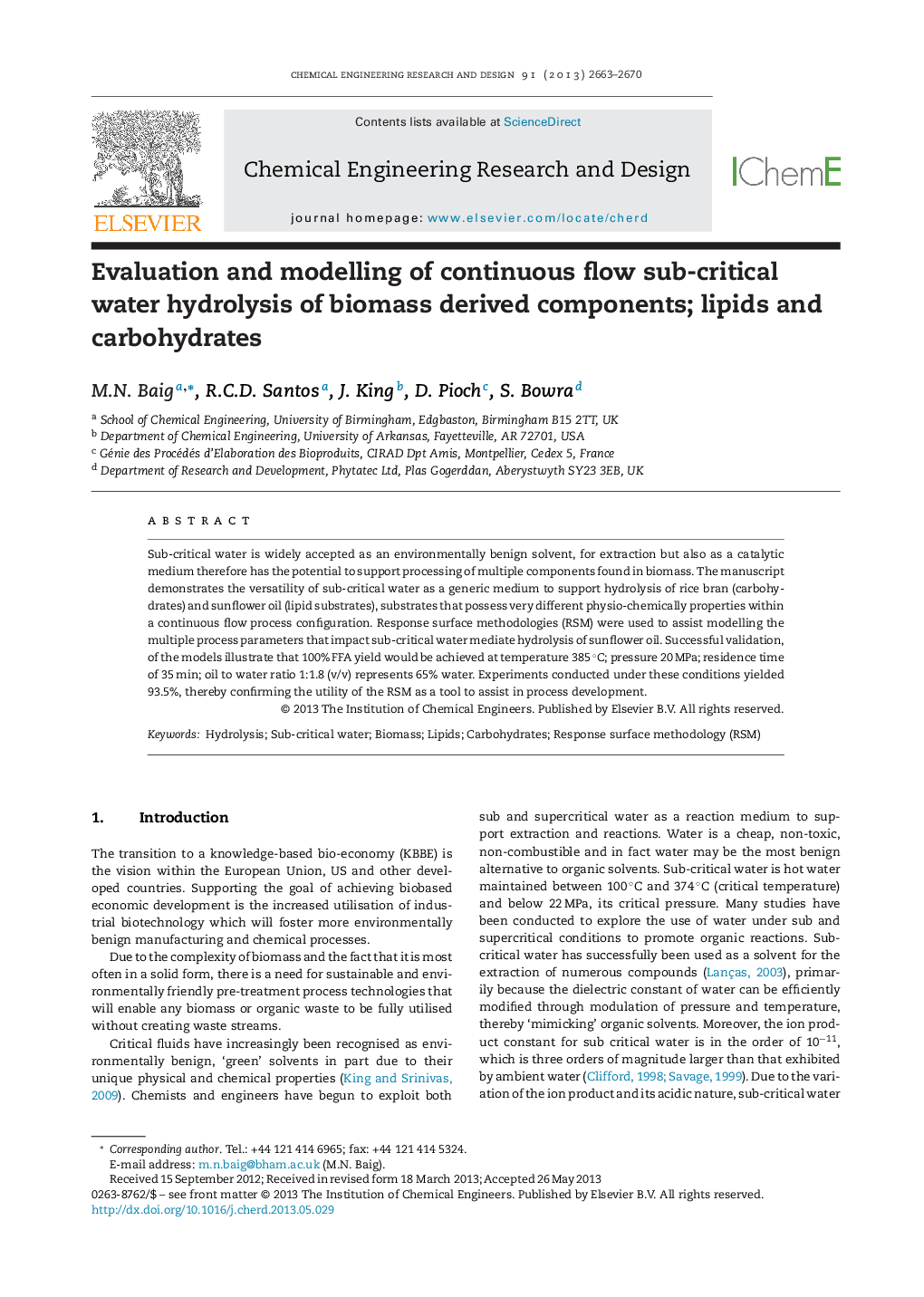| Article ID | Journal | Published Year | Pages | File Type |
|---|---|---|---|---|
| 620648 | Chemical Engineering Research and Design | 2013 | 8 Pages |
•Demonstration of the utility of sub-critical water (SCW) as a catalytic medium for processing lipids and carbohydrates.•Feasibility and process advantages of continual flow SCW mediated hydrolysis of lignocellulosic biomass demonstrated.•Applied and validated RSM to assist process optimisation related to multi product biorefining development.•Efficient (>90%) sub-critical water mediated hydrolysis of sunflower TAGs within 60 min.
Sub-critical water is widely accepted as an environmentally benign solvent, for extraction but also as a catalytic medium therefore has the potential to support processing of multiple components found in biomass. The manuscript demonstrates the versatility of sub-critical water as a generic medium to support hydrolysis of rice bran (carbohydrates) and sunflower oil (lipid substrates), substrates that possess very different physio-chemically properties within a continuous flow process configuration. Response surface methodologies (RSM) were used to assist modelling the multiple process parameters that impact sub-critical water mediate hydrolysis of sunflower oil. Successful validation, of the models illustrate that 100% FFA yield would be achieved at temperature 385 °C; pressure 20 MPa; residence time of 35 min; oil to water ratio 1:1.8 (v/v) represents 65% water. Experiments conducted under these conditions yielded 93.5%, thereby confirming the utility of the RSM as a tool to assist in process development.
